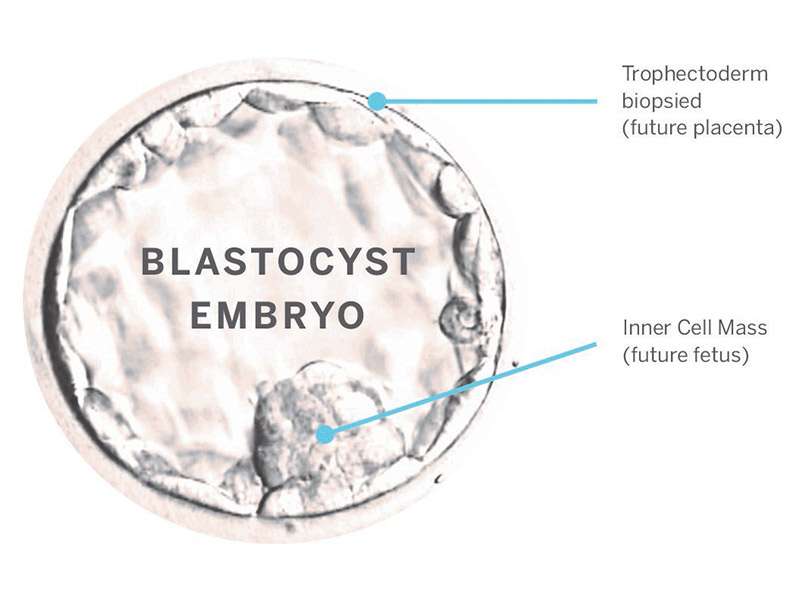Preimplantation genetic testing of embryos is an option offered at Main Line Fertilty that increases the possibility of a successful pregnancy after in vitro fertilization (IVF). PGT can help identify embryos that have genetic abnormalities that can result in a miscarriage or in a genetic disorder. Additionally, genetic testing allow patients to know the sex of the embryos if they wish.
HOW PGT IS PERFORMED
To perform preimplantation genetic testing, embryologists remove a small sample of cells from the outer layer (called the trophectoderm) of a blastocyst on day 5, day 6 or day 7 of culture. The blastocyst is frozen after the sample is removed and remains at Main Line Fertility’s laboratory. The biopsy sample is sent to a laboratory for genetic testing.

Types of PGT

ANEUPLOIDY
(PGT-A)
Screens for aneuploidy which is too few or too many chromosomes. Aneuploidy can lead to IVF failure or miscarriage and occurs randomly in embryos during development.

MONOGENIC
(PGT-M)
Diagnoses specific genetic disorders in embryos such as Cystic Fibrosis, Fragile X, Muscular Dystrophy, BRCA, Thalassemia, Tay Sachs and others.

STRUCTURAL REARRANGEMENTS (PGT-SR)
Identifies whether the embryo has a structural rearrangement of its chromosomal matter. PGT-SR can be performed to improve the chance of establishing a healthy pregnancy for people with a chromosomal translocation.

PATIENTS WHO MAY BENEFIT FROM PGT INCLUDE
-
-
- Patients over the age of 34
- Patients who have experienced repeated IVF failure
- Patients or partners who are carriers or are affected by genetic disorders that can be passed down to a child
- Patients with a history of miscarriage
- Patients who do not want to incur cryostorage fees of chromosomally abnormal embryos
- Patients who wish to reduce their risk of miscarriage and genetic abnormalities
- Patients interested in sex selection for family balancing
-
For more information about preimplantation genetic testing, please contact our patient care advocate.